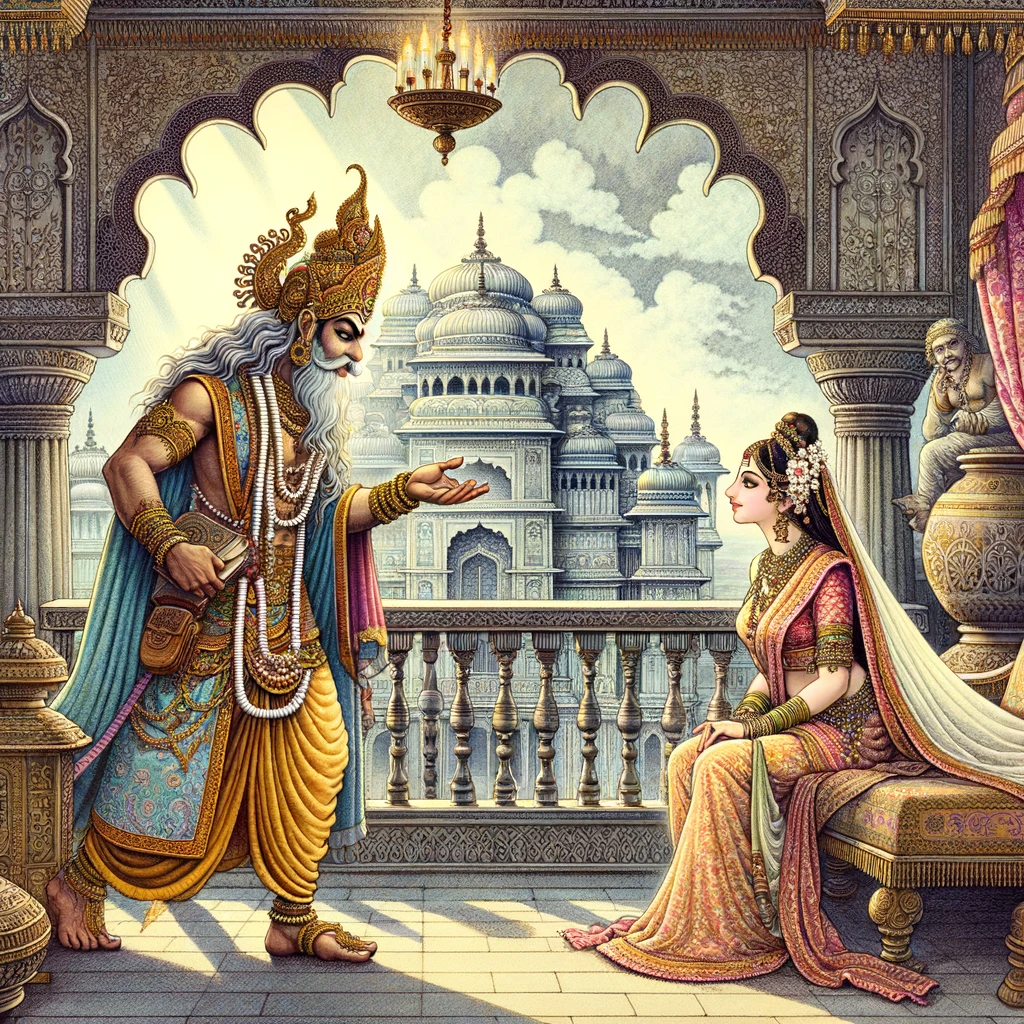In a city known for its sugarcane, there lived two friends, a weaver and a carpenter. They were very good at their jobs and made a lot of money. They dressed in fancy clothes, smelled nice, and had fun after work, going to plays and parties.
During a big festival, everyone dressed up and went out. The weaver and the carpenter saw a beautiful princess at a palace window. She was very pretty and the weaver fell in love with her right away. He went home feeling lovesick and couldn’t stop thinking about her.
The carpenter, seeing his friend so sad, found out he was in love with the princess. He wanted to help, so he made a special wooden bird that could fly. He told the weaver to dress up like a god and use the bird to visit the princess.
That night, the weaver did as the carpenter said. He flew to the princess’s balcony and met her. She thought he was a god and was very honored. He told her they were married in heaven and now they could be together.
They met secretly every night, and the weaver would fly back home before morning. But soon, the princess’s father, the king, found out she was meeting someone. The king and queen hid and saw the weaver as a god. They were very happy, thinking their daughter was married to a god.
The king stopped paying taxes to another king, thinking he had a god on his side. This made the other king angry, and he came with an army to fight. The weaver, still pretending to be a god, went out to face the army. Meanwhile, in heaven, the real gods saw this and were confused. They decided to help the weaver.
The weaver, with the help of the gods, defeated the other king and saved the city. Everyone was happy and the weaver lived happily with the princess.
The moral of "The Weaver Who Loved a Princess" centers on the themes of ingenuity, determination, and the power of friendship. The weaver, with the help of his friend the carpenter, uses cleverness and resourcefulness to achieve what seems impossible: winning the love of a princess and overcoming great challenges.
The carpenter's support and creative solution, in the form of the mechanical bird, demonstrate the value of friendship and collaboration in achieving goals. The weaver's determination and willingness to take risks for love show the importance of persistence and courage in the face of daunting obstacles.
Additionally, the story illustrates how appearances can be deceiving, as the weaver successfully masquerades as a deity to win the princess's affection and respect from others. However, this aspect of the story also hints at the potential consequences of deception and the importance of honesty in relationships.
Overall, the moral underscores the idea that with creativity, determination, and the support of friends, one can overcome significant challenges and achieve their deepest desires.


